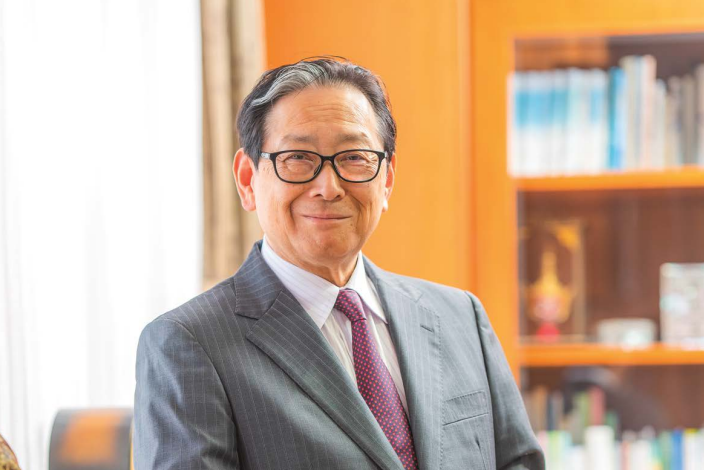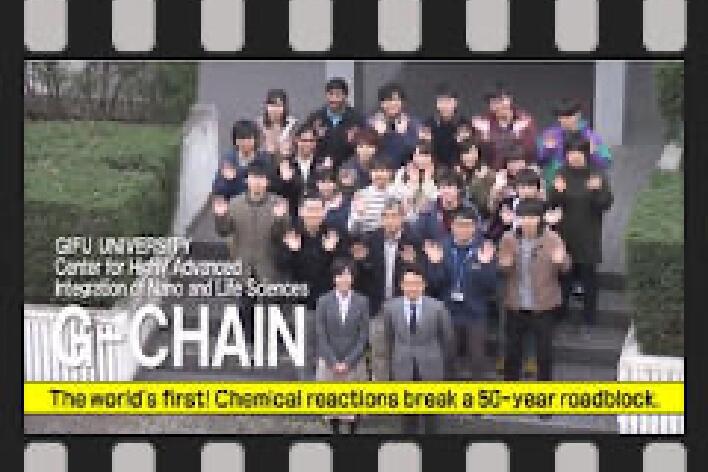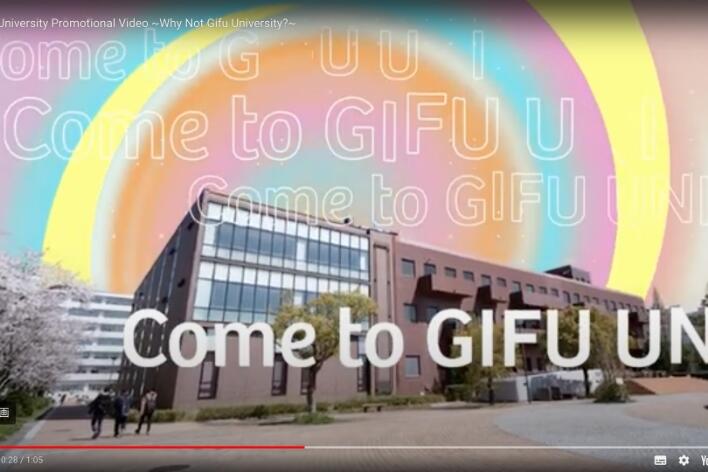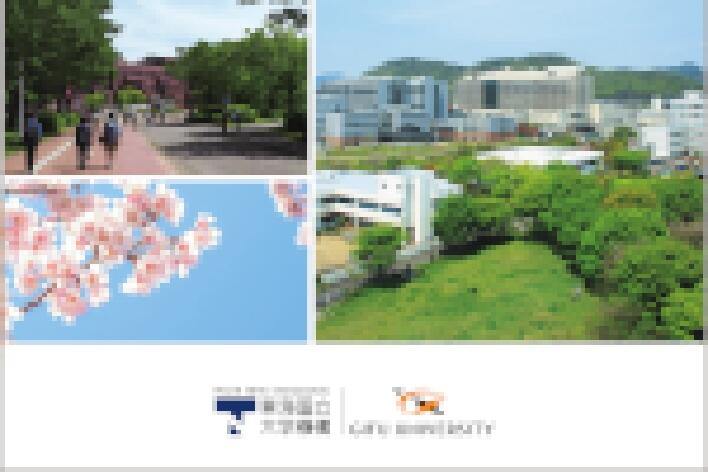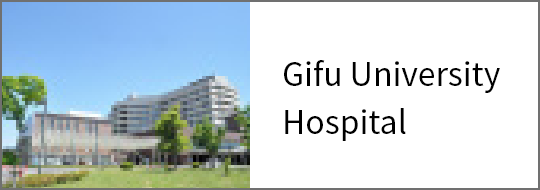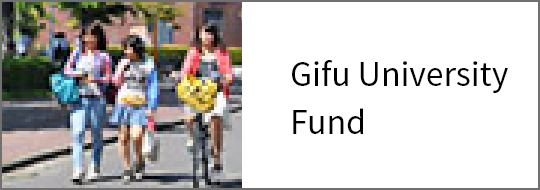Entrance Ceremony for 2019
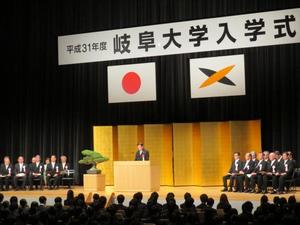
To all of the new students, congratulations on admission to our university. We are extremely pleased to have 1,343 new entrants to our campus today for 2019, and on behalf of the Gifu University faculty, I welcome all of you. I am sure you are happy about joining us and eager to learn, and we are very glad that we will be able to share your sense of freshness and to join you in your new place of study. I would also like to take this opportunity to give our congratulations to all the people who have supported you till now.
To begin my remarks, I would first like to consider what it means to study at a university. I would also like to note several things that, as university students, I recommend you to keep in mind.
Firstly, you should realize that the way in which you study here will be entirely different from the way you have studied in the past. As high school students, you were at a school. Beginning today, you are at a university. You were before taught in classes, but from now on, you will attend lectures. Before, you were just students. Beginning today, you are university students. So how are these different? In your time here, in addition to existing academic disciplines, you will study the distinctive fields of natural sciences, human sciences, and social sciences that the faculty have helped to establish through nearly enormous amounts of work. Upon studying these disciplines, you will create your own scientific discipline, and by this I mean that you will establish ways of thinking about things on your own. This is what it means to study at a university.
What I would like to say in relation to this concern is that in particular, the first year of studying is extremely important. It is in the first year that you learn study habits and methods that are different from before. In actual fact, students' academic results at graduation have a strong correlation with their academic results in the first and second semesters in the first year. You are encouraged to put all your efforts, starting with introductory education in the first year, without letting your mind drift just because you have entered university.
Also, to accomplish this, it is essential that you have a basic grounds. Only when you have such grounds, you will receive a higher, advanced education. These grounds consist of liberal arts education. In some old libraries in the West, for example, these are represented by figures of seven goddesses flying high above the hall. To use strictly classical terms, these are rhetoric, grammar, astronomy, logic, algebra, geometry, and art, as well as philosophy that unifies the above seven. At present, of course, there are probably few subjects in the modern era whose direct objective is one of these, but in addition to your advanced, specialized education, I ask that you also try to aim for the goal of getting a liberal arts education as well. The reason is that it will form the foundation of your role as a member of society, which I would like to talk about briefly.
All of you are already members of society, with the right to vote. You are all ladies or gentlemen. Your studies at university are made now upon your own responsibility as adults. From the moment you enter this campus as new university students, all of us―as well as society―see you as ladies and gentlemen. We expect that you are ladies and gentlemen both at university and in the lives you lead. I would like all of you to take every opportunity you can to strive to be ladies and gentlemen.
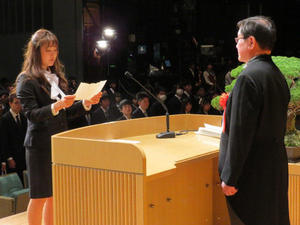
Next, I would like to touch on the long, proud history of Gifu University. I will then talk about the Gifu University's vision for the future, which is a plan that covers roughly the next decade, when the students here today will already have graduated and, I am confident, will have become indispensable members of society. Gifu University was founded in 1949, but each faculty has its own roots, which are generally much older. For example, Gifu Prefectural Normal School, the present Faculty of Education, was established in 1873, and this year marks the 146th anniversary since the school foundation. If we trace back as far as 1873, Gifu University is the fourth oldest university in Japan. Please also note that the Faculty of Applied Biological Sciences was established as early as in 1923, and both the Faculty of Engineering and the School of Medicine were founded in 1940s. You can look back the history of Gifu University by a variety of archives both on and off campus, which I recommend you do as it is quite interesting.
Gifu University will celebrate its 70th Anniversary on June 1, 2019. Wide-ranging anniversary-related events and activities are scheduled to be held throughout the year with an opening commemoration ceremony on June 1 as a starter. Gifu University possesses innumerable academic and artistic resources. Realization of "Campus Museum Concept" is now in a final stage and when realized, the whole university campus will become an "open museum" for everyone to enjoy observing extensive archived academic and artistic assets that the university has preserved for decades. The entire campus spaces surrounded by rich greenery will serve as a museum venue and a newly established Archive Core in the University Library will play an important role in the concept. University campus map and index will be uploaded on the university website around June. Visitors can take a walk by looking at campus information downloaded into their own smartphones or tablets.
Now I would like to talk about Gifu University's grand vision covering the period to 2025. With regard to a new integration framework that will hold two national universities, Nagoya University and Gifu University under a single corporation, active Diet deliberations are taking place over a revision of the Act of the National University Corporations, therefore I would like to refrain from making any comments at this point. However the name, "National University Corporation Tokai National University System" to describe the integration, has already been listed in the revision bill.
Gifu University aims to be not only a center of community revitalization, but also a center for nationwide and international education and research hub in fields in which the university possesses strengths and distinctiveness. Gifu University's Center for Collaborative Study with Community plays a pivotal role as a cross-sectional center of community revitalization and its major mission includes implementation of COC and COC+. The term COC stands for "Center of Community," and COC+ program has been propelled by the Ministry of Education, Culture, Sports, Science and Technology (MEXT) to assemble human resources that can spearhead the endeavors for community rebirth. Gifu University had the honor to receive the highest evaluation from the MEXT for its successful execution of COC and COC+ in Japan. In addition, Gifu University is enjoying a robust support from the government for its international and national education and research bases: they are "Life Sciences Area: Center for Highly Advanced Integration of Nano and Life Sciences (G-CHAIN)," "Environmental Sciences Area: Next-Generation Energy Research Center," "Manufacturing Field: Advanced and Smart Die Engineering, Composite Materials," and the Medical Education Development Center (MEDC). Furthermore, construction works for new research bases in livestock science, food science and aerospace production technology on campus started last year and is scheduled to be completed next year. With this reinforcement and extension of our academic functions in these fields, we will keep on growing and pursuing maturity as education and research hub in the days to come.
Next, I would like to focus on our collaborations in the contexts of our role as a center for community revitalization and Gifu University's global contributions. By "community" here, we of course do not mean just our prefecture, city, or the Chubu region. Instead, we intend a much broader platform, one capable of serving as the launching base for contributions nationwide and even globally. Likewise, when we say "global," we do not mean the whole world in a vague sense. Instead, we envision collaborations between the individual community of Gifu and individual communities overseas. In this sense, the comparatively new term "glocal" matches our ideal much better than the terms "international" or "worldwide." In addition, such activities must mutually suit the needs of both communities. To this end, faculty members and students must work together to pursue and find solutions to the issues that are of importance to Japan and the wider world, too. For this reason, it is important for us to broaden our inquiries beyond the university setting and into the broader world. For new students in particular, regardless of your field or subject of investigation, I want you to strive to become members of society capable of contributing to both Japanese society and the global community.
Gifu University has agreements with 50 universities overseas, and hosts over 600 students and researchers from abroad annually. On campus there are always 300 or 400 international students. They can speak English at a level that the students newly joining the university today will understand, and more than a few of them are very fluent in Japanese. It may be a rare chance for you, so I suggest that you take the opportunity and interact with these international students. I also suggest that you take the earliest opportunity you can to go overseas. There are already students of the University who, as undergraduates, have entered international research contests, some of whom have won prizes in the fields of space engineering, gene biology and construction engineering. Gifu University has effective frameworks in place to assist students in taking on such international challenges.
To all of the new students here today, who are expected to become responsible members of society and devote themselves to the growth and prosperity of Japan and the world, let me share the message from Professor Toshihide Masukawa, the theoretical physicist who was awarded the 2008 Nobel Prize in Physics. The message was specially given for the university students when I had the honor to talk with him in 2017. "Young people should have aspirations, dreams and hopes. Your constant, strenuous efforts to attain them will be a driving force for growth."
Lastly, I would like to note the commitment on our part as members of the faculty. Gifu University is a place where students can become citizens capable of achieving the ideals I just mentioned. It goes without saying that faculty members work towards these ideals alongside new students. Let us join hands in our efforts to be good members of the university community in the years to come.
Let me conclude my remarks by wishing you a fulfilling, enjoyable campus life here at Gifu University. Again, congratulations on your admission to the University.
April 7, 2019
Hisataka Moriwaki
President of Gifu University
